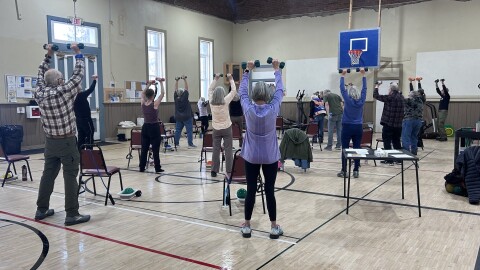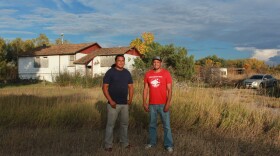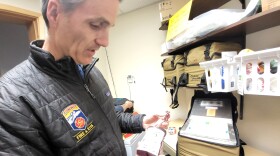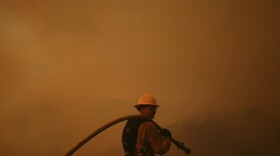-
Neonicotinoids hit the market as a safer way to kill pests. Then many pollinators started dying.
-
In many of Colorado's rural mountain towns, basic services can be few and far between. It especially impacts older residents. Limited social programming, or even the absence of a place to gather, can leave seniors isolated. Locals in Lake City are working to change that.
-
High number of cases in county along 3 state lines
-
A growing body of research suggests transfusing it early while on-scene may increase a trauma patient’s chance of survival before reaching a hospital.
-
A physician assistant from Colorado just completed his sixth medical mission in Ukraine. Bob Downs, from the tiny town of Lake City, volunteers with the nonprofit Global Care Force.
-
Spending time in nature can help military veterans cope with stress, depression and post-traumatic stress disorder. But a new report finds many veterans across the U.S. don’t live close enough to parks or green spaces to easily benefit from that connection.
-
Momentum is building toward deployment of respirators to protect wildland firefighters from a long list of toxins. But researchers argue that the workforce's practical concerns would need to be addressed for implementation to be successful.
-
The Healthy Lungs for Heroes Act was introduced by Democratic California Senator Adam Schiff and Republican Utah Senator John Curtis. If passed, the U.S. Department of Agriculture and other federal officials would have one year to develop a plan to make “commercially available appropriate respiratory personal protective equipment for wildland firefighters and supporting staff in settings in which smoke exposure surpasses covered permissible exposure limits.”
-
The tragic Los Angeles fires were a historically destructive disaster, but they also presented a unique opportunity to study the toxic exposures faced by firefighters. New findings point to a heightened risk for serious diseases like lupus.
-
A new national survey by the Urban Indian Health Institute is working to reveal how widespread traumatic brain injuries are among Indigenous survivors of domestic and sexual violence.
-
People over 70 are increasingly using firearms to end their lives. The rate is especially prevalent among Western states.
-
The Men's Shed chapter in Jackson Hole, Wyoming, brings good vibes to tackle serious themes
















